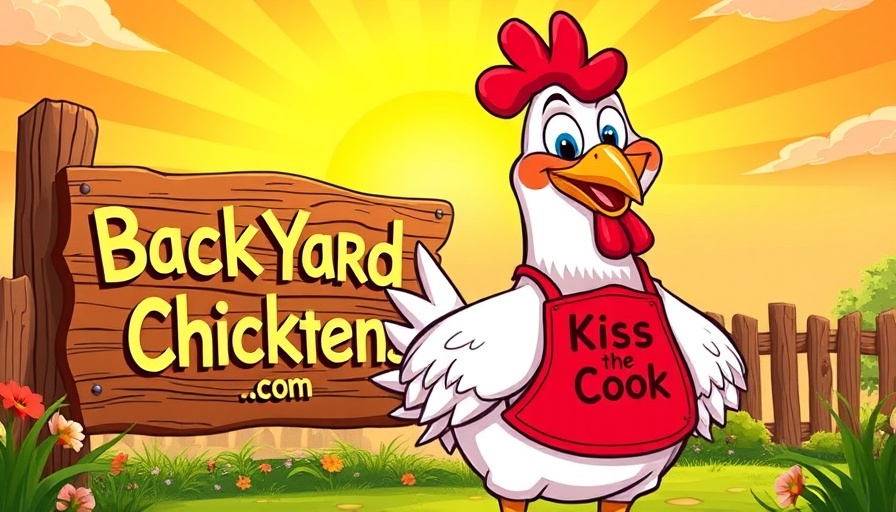
The Importance of Natural Breeding in Poultry
Natural breeding in chickens is gaining traction as a sustainability strategy among poultry enthusiasts. As more backyard farmers and homesteaders seek to maintain healthy flocks without resorting to commercial breeding practices, understanding natural breeding techniques becomes crucial. The focus is not merely on producing show birds for competitions but fostering robust genetics that can yield strong, resilient chickens for egg production and meat within small farms.
Understanding Sustainable Breeding Practices
Two prominent methods in natural breeding include flock mating and clan breeding, both aimed at ensuring genetic diversity and health within the flock. Flock mating allows roosters to breed with hens without strict control, fostering natural genetics and behaviors. Conversely, clan breeding facilitates more organized genetic mixing by rotating roosters among different clans each season, thereby reducing the risk of inbreeding and ensuring a diverse gene pool.
Evaluating Genetic Health for Natural Breeding
Careful selection of breeding stock is vital for maintaining genetic health. As highlighted in discussions around breeding chickens naturally, it is imperative to monitor egg production and overall resilience against diseases when selecting stock. Keeping records of health, production rates, and lineage assists in making informed breeding decisions that enhance the quality of offspring born into the flock.
Economic Considerations: Making Money with Your Flock
Beyond the health benefits, natural breeding techniques can significantly enhance the economic viability of a small poultry operation. As avian experts point out, selling chicks and fertilized eggs can become lucrative income streams for homesteaders. By implementing selective breeding, farmers can also cater to niche markets by offering heritage breeds or specific egg colors, thus creating a sustainable business model.
Creating a Community Around Poultry Breeding
Another key benefit of embracing natural breeding practices is the sense of community it fosters among poultry owners. Networking through local groups on social media platforms provides opportunities for sharing knowledge, and resources, and even trading breeding stock. This collaborative approach not only enriches the experience but ensures that the best practices are disseminated among members, promoting healthier flocks overall.
In summary, as more individuals delve into sustainable poultry farming, the insights from natural breeding practices will prove invaluable. By prioritizing genetic health, economic viability, and community engagement, aspiring breeders can cultivate flocks that thrive, thus contributing positively to our food systems and ecosystem.
Call to Action: Interested in enhancing your poultry breeding practices? Join local communities interested in natural breeding and share best practices! Explore workshops, community forums, and resources that can support your journey toward sustainable poultry management.
 Add Row
Add Row  Add
Add 




 Add Row
Add Row  Add
Add 

Write A Comment